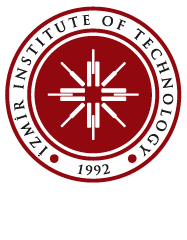Course Contents (Medical Biotechnology)
COURSE CONTENTS
MBT 601 Fundamentals of Medical Biotechnology (3-0)3 ECTS 9
The content of the course; definition of medical biotechnology, historical and general concepts, Basic biotechnological approaches, pharmaceutical biotechnology, Medical biotechnology, drug discovery and development, bioinformatics, gene technology, molecular biomedicine, immunotherapy, gene therapy, regenerative medicine, drug delivery technologies.
BTEC 510 Ethical Issues in Life Sciences (3-0)3 ECTS 9
The course, in accordance with its aims, examines and elaborates on ethical issues in life sciences with a special emphasis on the ethical, social and environmental implications of animal and plant biotechnology. On the one hand, it focuses on the ethical issues that are relevant to the internal conduct, i.e., philosophical, epistemological and methodological procedures, of life sciences; and, on the other hand, it examines the questions regarding the ethical conduct of the researcher in research design, data collection, the evaluation of data, and the presentation of the findings.
MBT 598 Research Seminar (0-2)NC ECTS 9
The course is composed of literature search, data collection, data analysis and reporting on the PhD thesis topic chosen by students under the guidance of their advisors.
MBT 600 PhD Thesis (0-1)NC ECTS 26
Under the supervision of at least two faculty members, one main and one assistant counselor from different disciplines as advisors, the student proposes an independent study, plans and performs experimental and/or theoretical work and prepares a PhD thesis on a research topic (s) based on the current fields of biotechnology.
MBT 8XX Special Studies (8-0)NC ECTS 4
Graduate students supervised by the same faculty member study advanced topics under the guidance of their advisor.
MBT 610 Metabolism and Regulation (3-0)3 ECTS 9
In the content of this course; An overview of metabolism, basic differences in the metabolism of eukaryotic and prokaryotic systems, protein, nucleic acids, protein carbohydrate lipid metabolism, metabolic coordination are given comprehensively.
MBT 615 Data Analysis and Visualization Using R (3-0)3 ECTS 9
This course covers; Write scripts in R language; install and execute R packages; input and manipulate data; create informative graphs from data; conduct basic statistical analyses in R. Students will also do a project with R and do presentations. Class will be interative with full participation of students. Students will learn the R programming language; they will learn the fundamentals of coding and R packages; they will learn data input, data manipulation; scientific graph construction and basic statistic applications in R.
MBT 620 Special Topics in Genetics and Genomics (3-0)3 ECTS 9
Students examine the latest and most recent topics and techniques in genetics and genomics not restricted to molecular, cellular, animal, and plant subjects. They read and critically evaluate the papers and other publications, and do presentations on them. They also try to offer solutions to problems in the related fields. During course, students will learn recent genetic and genomic applications used in Biotechnology, analytically and critically evaluate literature and improve scientific presentation skills by doing scientific presentations on relevant subjects.
MBT 625 Neutral Lipid Metabolism in Health and Disease (3-0)3 ECTS 9
This course covers; Lipid Chemistry, Classification and Metabolism, Cholesterol and Triglyceride Metabolism, Effects of Signaling Pathways on the Neutral lipid metabolism, Lipid Droplets: Structure, Function and Metabolism, Hormonal Regulation of Neutral Lipid Metabolism, Metabolic Syndrome and Neutral Lipid Metabolism, Cancer, Drug Resistance and Neutral Lipid Metabolism, Microbial Infections and Neutral Lipid Metabolism, Neurological Diseases and Neutral Lipid Metabolism, Lipidomics, Nutrigenomics and Experimental Approaches, Dietary Issues, Exercise and Neutral Lipid Metabolism.
MBT 630 Biosynthesis of Secondary Metabolites (3-0)3 ECTS 9
This course covers the following topics: Photosynthesis, Biological oxidation, Building blocks of secondary metabolism and basic mechanisms, Acetate pathway, Shikimate pathway, Mevalonate pathway, Biosynthesis of some important alkaloids, Biosynthesis of carbohydrates.
MBT 635 Pharmaceutical Biotechnology (3-0)3 ECTS 9
This course covers; the role of biotechnology in drug development and production, related basic concepts and applications, process validation for biopharmaceuticals; posttranslational modifications for pharmaceutical development; chromatography-based separation of biopharmaceuticals; microarrays; formulation and delivery issues of biopharmaceuticals; pharmacokinetics and pharmacodynamics; gene therapy; biosimilars; clinical trials; individualized therapy; metabonomics.
MBT 640 Macromolecules of Life: Biomolecules (3-0)3 ECTS 9
In the course, introduction to chemistry of life, basic macromolecules in biological systems and structures in biological systems, structure and functions of biomolecules; Macromolecules such as amino acids, peptides, proteins, enzyme, coenzymes, nucleic acids, lipids, carbohydrates are described in detail. The importance of these molecules in life and the reactions they take are exemplified.
MBT 645 Bio Accessibility-Bioavailability-Bio Functionality (3-0)3 ECTS 9
The functional molecules that might be important for industry such as drugs, biosimilar, nanoparticles, encapsulated molecules, plant or animal derived molecules. The experimental approaches to identify theirs a)The stability of molecules into GI and levels of molecules after digestion, b) Absorption parameters of molecules from small intestine c) Possible physiological functions of molecules on the tissues.
BTEC 580 Special Topics in Biotechnology (3-0)3 ECTS 9
Contents vary according to interests of students and instructors in charge. Contents may include advances in modern biotechnology, plant and animal cell cultures, modeling and simulation of bioreactors and metabolite production. Preparation of a literature review paper on the student’s interest or research area will be required at the end of this course.
BTEC 585 Biosensors (3-0)3 ECTS 9
Biosensors are modern bioanalytical devices, which are developed with a support of biology, physics, chemistry, biochemistry and engineering departments by combining the specificity features of biological materials or systems with the processing abilities of modern electronic techniques. The aim of this course is to give basic information about the biosensors to the students.
